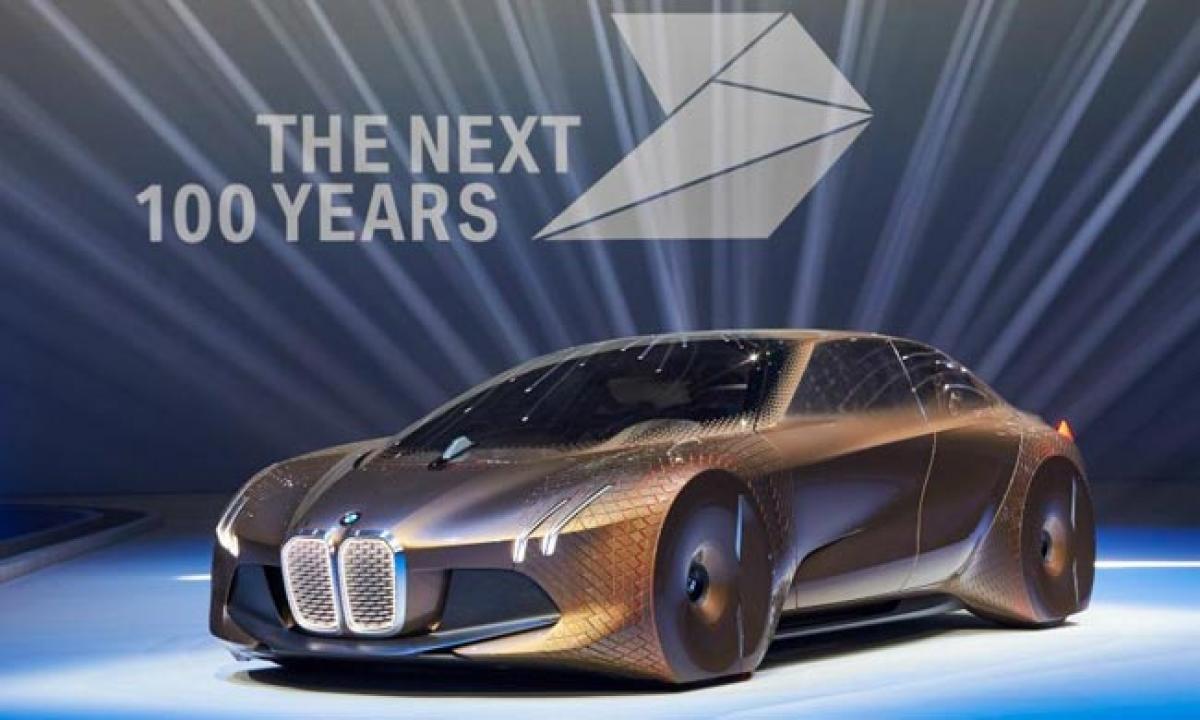Live
- Pakistan battles smog emergency as millions suffer from respiratory infections
- Another tigress released in soft enclosure in Similipal
- Cong, BJP leaders’ rush to join AAP shows we are winning Assembly polls: Kejriwal
- Janajatiya Gaurav Diwas: PM Modi’s selfie with members of Irula tribe draws attention
- Bolivian Opposition leaders arrested on terrorism charges
- 1 in 5 IT decision-makers struggling to find AI/ML talent: Report
- India's economy in sweet spot with strong growth, inflation likely to ease: Moody’s
- Mani Shankar Aiyar questions Jaishankar's visit to Pakistan, says he created 'false hope'
- K.T. Rama Rao calls on farmers arrested for attack on Vikarabad officials
- AP CM Chandrababu Naidu Unveils Vision for Andhra Pradesh amidst Financial Challenges
Just In

BMW is teaming up with Intel and Mobileye to develop new technology for the auto industry that could put self-driving cars on the road by around 2021.
BMW is teaming up with Intel and Mobileye to develop new technology for the auto industry that could put self-driving cars on the road by around 2021.
The alliance highlights a shift in the dynamics of research and development in the car industry, which until recently saw automakers largely dictating terms for suppliers to manufacture their proprietary technologies at specified volumes and prices.
Now carmakers are increasingly striking up partnerships with technology firms using open technology standards, seeking to harness their expertise in areas including machine learning and mapping as they race against Silicon Valley companies such as Google, Tesla and Apple to develop driverless vehicles.
"Highly autonomous cars and everything they connect to will require powerful and reliable electronic brains to make them smart enough to navigate traffic and avoid accidents,” Intel Chief Executive Brian Krzanich said on Friday at a joint news conference announcing the alliance.
The three companies said their new platform would be made available to multiple carmakers and they expected vehicles with highly and fully-automated driving would be brought into mass production by 2021. It is too early to say which other carmakers would join the alliance, BMW Chief Executive Harald Krueger said at a news conference on the outskirts of Munich on Friday.
Sophisticated cruise control systems already enable "hands off" driving as cameras and computers allow cars to automatically brake, steer and accelerate in traffic at low speeds. But drivers are required to stay in control.
Now BMW, Intel and Mobileye will develop cars with even higher levels of automation described as "eyes off," "mind off," and "driver off". This requires much more computing power and software know-how, forcing traditional carmakers to collaborate more closely with technology specialists.
Both industries see huge revenue opportunities in the market for autonomous vehicles, although it is unclear how many drivers will be prepared to relinquish control and how quickly laws will be put in place to allow fully autonomous vehicles on the roads.
But creating common technology standards would help all manufacturers update their vehicles faster, Intel Chief Executive Brian Krzanich said."That will be critical for advancing the safety aspects of this."
A common approach to standards will also make it easier for regulators to understand and approve the roadworthiness of a vehicle while still leaving enough scope for individual car manufacturers to customise their cars, Mobileye Chairman Amnon Shashua said.
Beyond technological hurdles there are legal questions over who is responsible when a crash occurs. On Thursday, the driver of a Tesla Model S car, operating in Autopilot mode, was killed in a collision with a truck in the United States, prompting an investigation by federal highway safety regulators.
When asked about the crash, BMW CEO Harald Krueger said: "The accident is very sad .... We believe today the technologies are not ready for series production," he added, explaining the alliance had not forecast that until 2021.
"For the BMW group, safety comes first," he said.
As part of the new alliance, Intel, the world's largest computer chip maker which has been looking to expand into the automotive electronics market, will supply the microprocessors - or central processing units - to control an array of sensors.
Auto camera and software maker Mobileye will supply its Road Experience Management (REM) technology and make its latest EyeQ5 chip available to be deployed on Intel computing platforms.
The three companies said they would demonstrate their technology in a prototype in the near future.
- dynamics of research and development in the car industry
- BMW
- Intel
- Mobileye
- self-driving cars
- new technology
- Silicon Valley
- Tesla
- Apple
- Intel Chief Executive Brian Krzanich
- BMW Chief Executive Harald Krueger
- Munich
- lastest update on BMW
- Latest updates on Auto expo
- BMW self driving cars to hit the roads by 2021
- self-driving cars

© 2024 Hyderabad Media House Limited/The Hans India. All rights reserved. Powered by hocalwire.com







